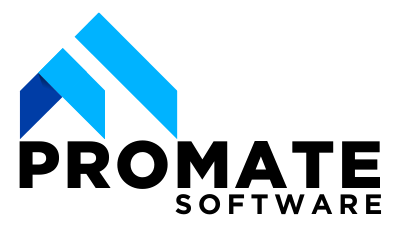By Dilupa Ranatunga, PMP
Introduction
Project management has always been about balance. Balancing time, budget, scope, resources, and expectations. Yet despite the growth of professional certifications and the wide adoption of project management software, failure rates remain high. The Project Management Institute (PMI) reports that 11.4 per cent of investment is wasted due to poor project performance PMI Report.
For today’s project managers, the challenge is not simply keeping projects on track but also managing increasing complexity. Hybrid work, constant digital communication, and stakeholder demands make projects harder to control.
Artificial intelligence is now stepping into this space. What was once a buzzword is now a practical tool shaping the way projects are executed. AI is automating repetitive work, predicting risks before they occur, and offering insights that help managers make smarter decisions. This is not about replacing project managers. It is about making them more effective leaders.
Why Project Management Needs a Fresh Approach
Traditional methods and static tools are reaching their limits. A project manager working in 2010 might have spent most of their time on task allocation and scheduling. Today, managers oversee distributed teams working across multiple time zones, using dozens of collaboration platforms, and producing vast amounts of data.
- 70 per cent of organisations now use some form of agile methodology PMI 2023.
- Remote work has expanded globally. A study by Owl Labs found that 16 per cent of companies are fully remote Owl Labs Report.
- Data overload is real. Gartner found that employees spend 30 per cent of their time searching for information Gartner Research.
Project managers cannot succeed with only manual tools. AI offers the ability to cut through complexity and give managers the clarity they need.
The Role of AI in Modern Project Management

The PMI Pulse of the Profession 2024 report points out that organisations using AI for project management are seeing up to 20 per cent improvement in project success rates PMI Pulse 2024. The biggest benefits come from automation and analytics.
Think of AI as the extra set of eyes and hands every project manager needs. AI can:
- Track project milestones in real time
- Detect when tasks are falling behind
- Highlight risks based on historical project data
- Recommend workload adjustments across team members
- Generate instant project updates for stakeholders
Instead of spending half the day on admin tasks, managers can focus on leading people and building trust with clients. This is the shift AI is enabling.
Key Areas Where AI Improves Project Management
Automating Routine Work
Research by Accenture shows that project managers spend up to 54 per cent of their week on routine work such as updating reports and chasing approvals Accenture AI Report. AI tools like ClickUp AI and Asana Intelligence now draft reports, update schedules, and even prepare client-ready summaries.
Smarter Risk Management
According to PMI, one in three projects fails due to unmanaged risks PMI Insights. AI platforms analyse historical data to highlight where issues might arise. For example, Jira with AI integrations can flag sprint bottlenecks early. Microsoft Copilot in Teams can identify action items from meetings that may slip if not tracked.
Better Resource Allocation
Misallocated resources are one of the top three causes of project failure. AI can analyse skills, workloads, and project timelines to suggest optimal task distribution. Smartsheet with AI add-ons already predicts overbooking and suggests reassignments Smartsheet AI.
Decision Support and Predictive Insights
Predictive analytics is one of AI’s strongest contributions. Instead of reporting after the fact, tools now forecast outcomes. A Gartner study predicts that by 2026, AI-enabled forecasting will reduce project delays by 30 per cent Gartner Report. Managers will know weeks in advance whether milestones are likely to be missed.
Enhancing Communication and Collaboration
Communication breakdowns are another major cause of failure. AI reduces this risk. Tools like Otter.ai and Notion AI generate meeting notes and action items instantly. Promate’s AI assistant summarises discussions and connects updates to active projects, ensuring teams never lose track of decisions.
Real World Examples and Tools in Action
- Promate: Tailored for construction and technology teams, Promate uses AI to automate documentation, provide real-time insights, and strengthen team collaboration.
- Microsoft Copilot: Integrated with Office and Teams, it creates project charters, meeting notes, and even budget overviews in minutes.
- Asana Intelligence: Uses natural language to prioritise tasks and predict project outcomes Asana AI.
- ClickUp AI: Focuses on automating recurring updates and creating project briefs ClickUp AI.
- Jira AI: Predicts sprint risks and helps agile teams avoid delays Jira AI.
Each of these tools addresses specific challenges but together they show how AI is already embedded into the daily work of project managers.
Comparing Promate with Other AI Project Management Tools
Promate is entering a competitive field, but its focus makes it unique.
- Promate vs Microsoft Copilot: Copilot is strong in documentation and Office integration, but Promate is built specifically for project workflows, giving managers real-time project visibility rather than static summaries.
- Promate vs Asana Intelligence: Asana is excellent for general team productivity. Promate adds deeper project insights for industries like construction and technology where scope changes are common.
- Promate vs ClickUp AI: ClickUp provides wide coverage of productivity features, but Promate is designed for project managers who need compliance-ready documentation and advanced reporting.
- Promate vs Jira AI: Jira excels in agile and software teams. Promate is more versatile across industries where both agile and traditional methods are used.
This positioning is important because project managers need tools that match their industry context, not just generic AI features.
The Future of AI in Project Management

Looking ahead, AI will not just assist project managers, it will reshape the discipline entirely.
- Agentic AI: Autonomous AI agents will run daily workflows, only escalating complex issues to human managers.
- Predictive Project Offices: Future PMOs (Project Management Offices) will rely on AI dashboards that simulate project outcomes before they start.
- Personalised PM Assistants: Every team member may have their own AI support bot to keep them aligned with project goals.
- Strategic Leadership Shift: As AI takes on admin and technical reporting, project managers will shift toward leadership, culture building, and stakeholder engagement.
Gartner predicts that by 2030, 80 per cent of project management tasks will be handled by AI Gartner Forecast. For aspiring managers, this means AI literacy will soon be as important as traditional PM skills.
Conclusion: Moving Forward with AI
Project management is evolving quickly. AI is not a side feature. It is becoming the foundation of how modern projects are managed.
For current project managers, the opportunity is clear. By adopting AI tools, they can reduce admin workload, improve communication, and deliver projects with fewer risks. For those looking to become project managers, learning to work with AI today will make them more employable and future ready.
At Promate, we believe the future belongs to managers who combine human leadership with AI efficiency. Our platform puts AI at the core of project delivery so you can focus on what really matters, leading your team and delivering successful outcomes.



